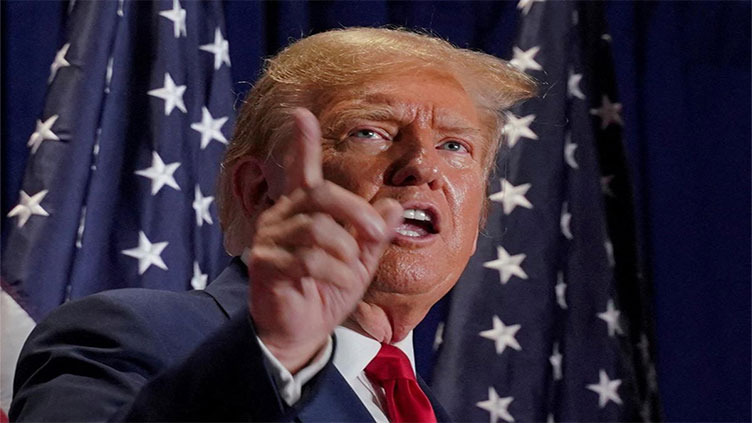Europe fears shift in domestic politics, security situation if Trump returns to office

World
European countries are nervous about the prospect of the return of former president Donald Trump.
BRUSSELS (Agencies) - With the United States’ presidential election a mere week away, many European countries are nervous about the prospect of the return of former president Donald Trump to the White House.
They believe a win for the Republican nominee on Nov 5 could signal the US’ pivot towards authoritarianism and in turn, embolden populist and nationalist leaders within and beyond the continent.
This comes amid a rise in popularity of Europe's far-right political parties.
“Trump has very clearly stated his preference towards working with ‘strongman’, Christian-leaning, anti-immigration leaders in Europe,” noted Majda Ruge, senior policy fellow at think tank European Council on Foreign Relations.
Trump already has the support of Hungary's right-wing nationalist Prime Minister Viktor Orban.
Although European leaders rarely weigh in on US elections before they are held, Orban ditched such conventions during the European Parliament earlier this month. While addressing the forum, he said he would celebrate a Trump win with bottles of champagne.
Orban, the EU's longest-serving leader, has become an icon to some conservative populists for championing what he calls “illiberal democracy”, which includes restrictions on immigration and LGBTQ rights.
“Hungary would 100 per cent put all its chips on a strong bilateral relationship with the United States and hope to get more influence through that in the European Union,” said Liana Fix, fellow for Europe at American think tank Council on Foreign Relations.
SUPPORT FOR KYIV AND NATO
Also keeping Europe up at night is the fear that Trump might pressure Ukraine to cede territory to Russia, encouraging Moscow to further encroach on countries on Europe's eastern flank.
Trump has repeatedly threatened to cut off aid to Ukraine, saying he will end the war within 24 hours if he wins the presidency.
On the campaign trail, Trump has criticised Ukraine President Vlodomyr Zelenskyy as “the greatest salesman of all time”, pointing to the billions in aid Washington has provided Kyiv.
US commitment to the North Atlantic Treaty Organization (NATO) under a Trump administration is also being called into question, given that he has threatened to pull out of the alliance if fellow members do not spend more on defence.
While he may not be able to do so under laws that restrict a president’s ability to unilaterally withdraw from alliances without congressional consent, the US can choose not to be active, experts said.
Democratic nominee and US Vice President Kamala Harris meanwhile has maintained that support for Kyiv is in the strategic interest of the US. She has also said her support for NATO is ironclad.
However, analysts said both presidential hopefuls would want to see more action from European partners.
The US would like to allocate resources towards countering China, which it sees as an important strategic rival, said defence security and military analyst Simon Diggins.
“But they can’t do that while the Europeans aren’t doing what they should be doing both in Europe and what you might call Europe’s near abroad, which is the Mediterranean and quite a lot of Africa as well,” the former British Army officer told CNA.
TEST TO TRADE TIES
The EU is also worried that trade ties with the US – worth more than US$1 trillion in goods and services annually and the most valuable in the world – could be put to the test.
Trump has threatened to impose duties of up to 20 per cent on all goods imported to the US, which would apply to the EU as well.
Sectors such as machinery, vehicles and chemicals – which together made up 68 per cent of EU exports to the US last year – would be hardest hit.
However, it would not be the first time Europe’s businesses have borne the brunt of such moves by Washington.
In 2018, Trump, who was serving his first term in office, imposed tariffs on European steel and aluminium. A duties truce overturning this was struck by the Biden administration but that arrangement will expire in March next year.
As the nature of its relationship with the US hangs in the balance, the EU has set up a rapid reaction force to deal with the outcome of the election.


